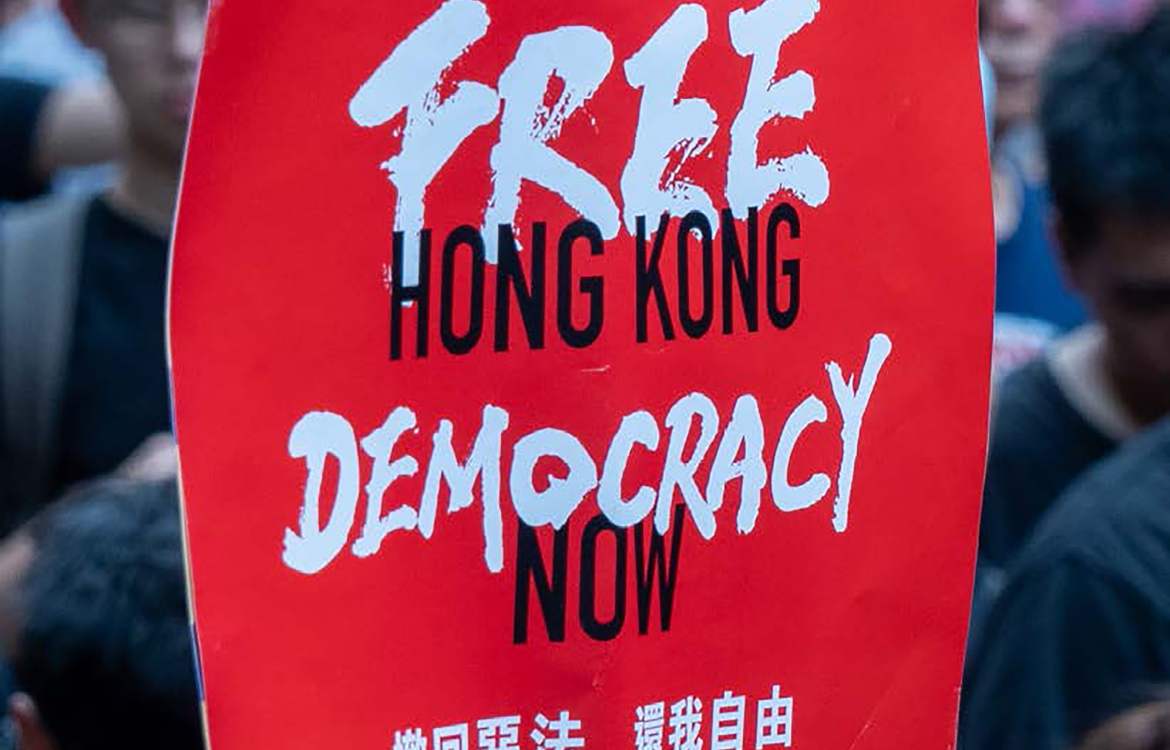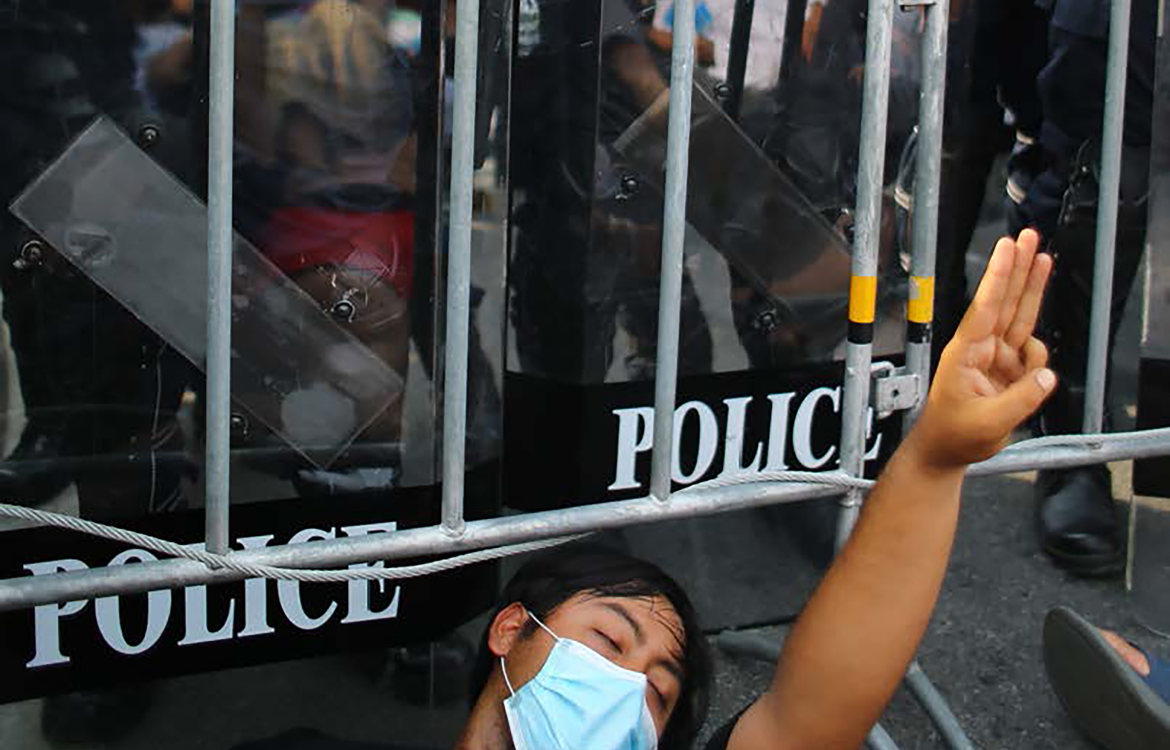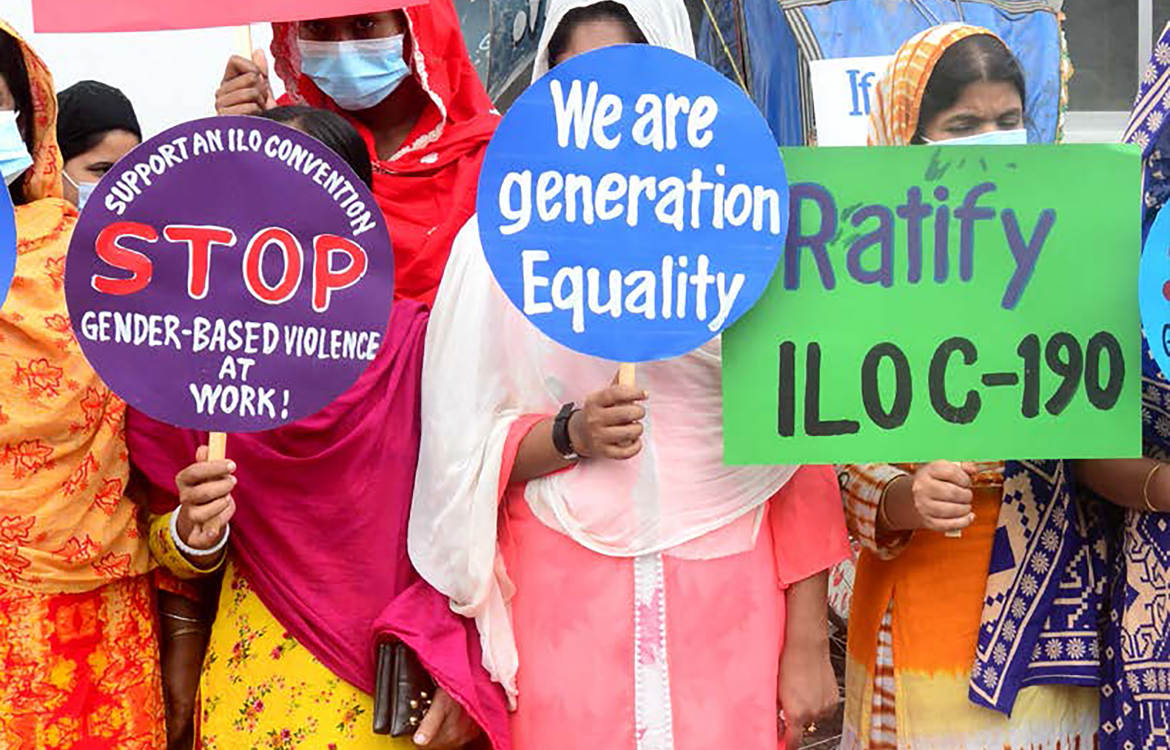Shrinking Spaces: Solidar Study from Asia
Increasing rights violations and restrictions on fundamental rights are of particular concern in Asia. A report by Elaine Lu and Fahmi Panimbang from Solidar Suisse Asia shows how civilians are oppressed by governments and why the struggle of activists and trade unions against the failure of democracy is more important than ever.
Those who speak out live dangerously: in China, human rights activists and lawyers are persecuted, arrested or have disappeared. In Pakistan, those who try to defend fundamental rights are called enemies of the state. The government has taken various measures to silence dissent. Between July 2020 and October 2021, over 1600 people stood trial in Thailand for political involvement and expression. In Cambodia, police cracked down on protests by trade unionists and many strikers were imprisoned. After the military took power in Myanmar, soldiers shot at demonstrators and hundreds of people were killed, including women and children.
Shrinking space on the rise
Worldwide, the problem of shrinking civic space is on the rise. Public civic space is becoming smaller and smaller. This is understood to mean, for example, freedom of expression or assembly for protests, strikes or demonstrations. In 2020, 87% of the world’s population lived in countries where fundamental rights are considered suppressed and severely restricted. In Asia, too, respect for fundamental rights has declined in many places and systematic violations of workers’ rights have accelerated, according to the Global Rights Index compiled by a global trade union body. The continent is ranked the second worst in the world for workers’ rights.
Civil society continues to fight
In collaboration with and as a member of the European network SOLIDAR, Solidar Suisse has produced a report looking at developments in the shrinking and disappearing civil society space in Asia. The report was written by Solidar staff members Elaine Lu and Fahmi Panimbang and is one of a series of studies by the Economic and Social Rights Monitor (ESRM) that focus on the shrinking of civil society space around the world. The report shows how countries such as China, Cambodia, Myanmar, Thailand, Pakistan and the Philippines suffer from repression and reprisals by the state. However, it also explains that over the past decades, large numbers of people in many parts of the world have rebelled against the failures of democracy and demanded change. Human rights activists and civil society continue to push for fundamental improvements in their rights and freedoms.
Findings and recommendations for action can be read in the attached study (PDF document).





